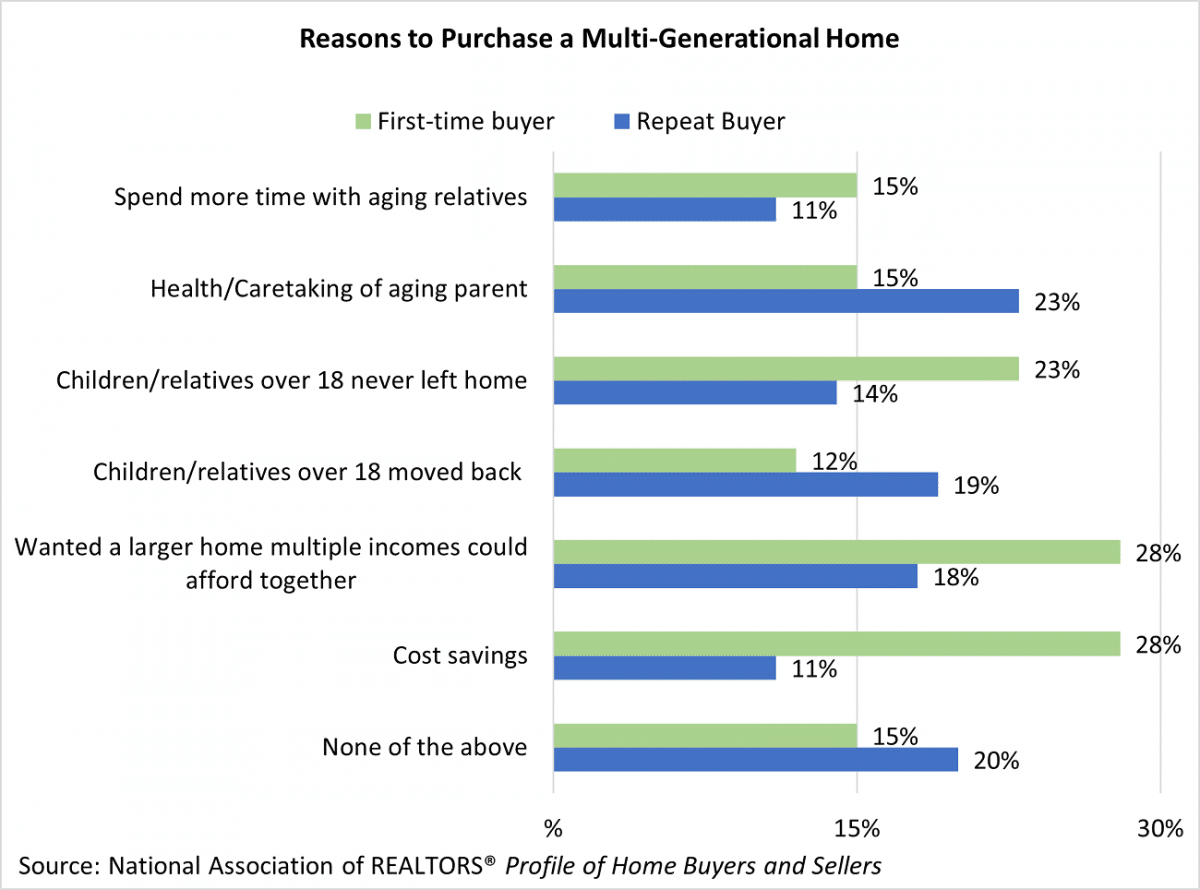The National Association of REALTORS® Profile of Home Buyers and Sellers shows that multigenerational homebuying increased in 2022.
Multigenerational homes are defined by NAR as homes where families live under the same roof with grandparents, adult children or other extended family members. The purchase of these types of homes peaked in 2020 as families gathered together during the pandemic, with 15% of buyers purchasing multigenerational homes. The latest data shows that the share of multigenerational home buyers was 14% from July 2021 to June 2022.
While reasons for purchasing properties with family members vary case by case, NAR’s report found that a majority of first-time buyers who purchased a multigenerational home did so because of cost savings or for the purpose of affording a larger home thanks to the multiple incomes that would be contributing to mortgage payments. Repeat buyers, on the other hand, were more likely to engage in multigenerational buying for health reasons or to take care of an aging relative.
The report also found that minority buyers are much more likely to purchase homes with family members or purchase houses with the intent of living with extended family members. While only 10% of caucasian buyers purchased multigenerational homes from July 2021 to June 2022, the amount was much higher at 18-19% for Black, AAPI, Hispanic and Latino buyers.
“As we see the transition of the large Baby Boomer generation age into retirement, it will be interesting to see if they move in with their Millennial and Gen Z children or if they stay put in their own homes,” said deputy chief economist and vice president of research at NAR Jessica Lautz in an Economists’ Outlook release. “The trend of multigenerational buying appears to be firmly established and one that could expand in the future.”

